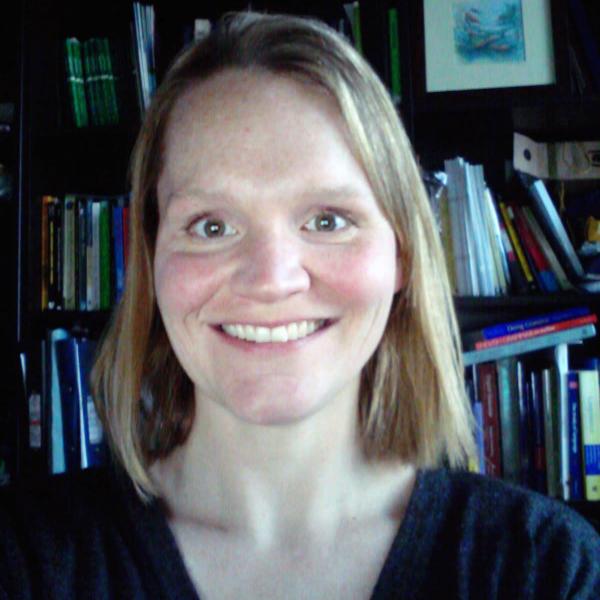No Love in War
Dr Valerie Hobbs from the School of English speaks about her upcoming book with Mayfly Books, No Love in War: A Story of Christian Nationalism.

We are all soldiers in the Third World War, and people do not make love in wartime.
Larry McDonald
Former United States Congressman and Member of the John Birch Society
My next book, No Love in War: A Story of Christian Nationalism (forthcoming, Mayfly Books), is an auto-ethnographic account of the everyday – and often violent – realities of life without love, among those who pursue war. It documents the ways that Dominionist theologies (the recovery of a theocratic state, with Christians in key positions of influence in all social institutions) manifest themselves in interpersonal relationships, resulting in manipulative, often violent misogyny, racism and homophobia. It follows the disordered and erratic trajectory of a woman’s life – my life – moving through three concentric circles of influence in the Dominionist movement, from extremist middle to the outer, softer rim, focusing in particular on the New Apostolic Reformation, Christian Reconstructionism and Neo-Calvinism in the United States.
Expert on cults and undue influence Dr. Steve Hassan writes, in The Cult of Trump, that it is movements like these which underscore the dominant forces in a major political party in the United States. And though these circles of the Christian Right may differ in their exact approach, all share the desire to see the recovery of what they believe they’ve lost – a Christian nation. And all enact their pyramid-scheme ideology, in the first instance, on those nearest and supposedly dearest.
Alongside my book’s highly personal account, I include over 100 references to primary sources to support and enrich the stories I tell. I document some of the hidden history of women central to Christian Reconstructionism and the homeschooling movement, which other writers depicting these communities have until now largely overlooked. My expertise as a linguist comes into play as I place the use and misuse of language at the forefront of the stories I tell, particularly language’s role in exercising dominance. In all, No Love in War exposes the personal side of Christian white male supremacy underpinning Dominionism, touching on such phenomena as purity culture, pyramid schemes and conspiracy theories, abortion and reproductive rights, mental illness, suicide, sexual assault and other intimate partner violence. Key to the telling of this story is the deliberately crude use of the Biblical text to demonstrate its weaponization in the mouths of religious-psychological abusers.
It seems appropriate to begin talking about my forthcoming book now, during Women's History Month, since, as the scholar Cheryl Glenn wrote in 2000,
Writing women (or any other traditionally disenfranchised group) into the history of rhetoric … can be an ethically and intellectually responsible gesture that disrupts those frozen memories in order to address silences, challenge absences, and assert women's contributions to public life.
My book is deliberately disruptive of previous work on the subject of Dominionist theology and Christian Nationalism, in that it is unapologetically focused on a woman’s voice and perspective, backgrounding the recorded history of religious-political events and foregrounding women’s personal history. No Love in War offers readers a chance to enter the lives of women who died and survived within the harshest of Dominionist communities, to begin to make some sense of the forces that shaped my life and the lives of many others like me, and ultimately, through this lens, to critically contemplate patterns of religious-political culture in religious nationalism.


